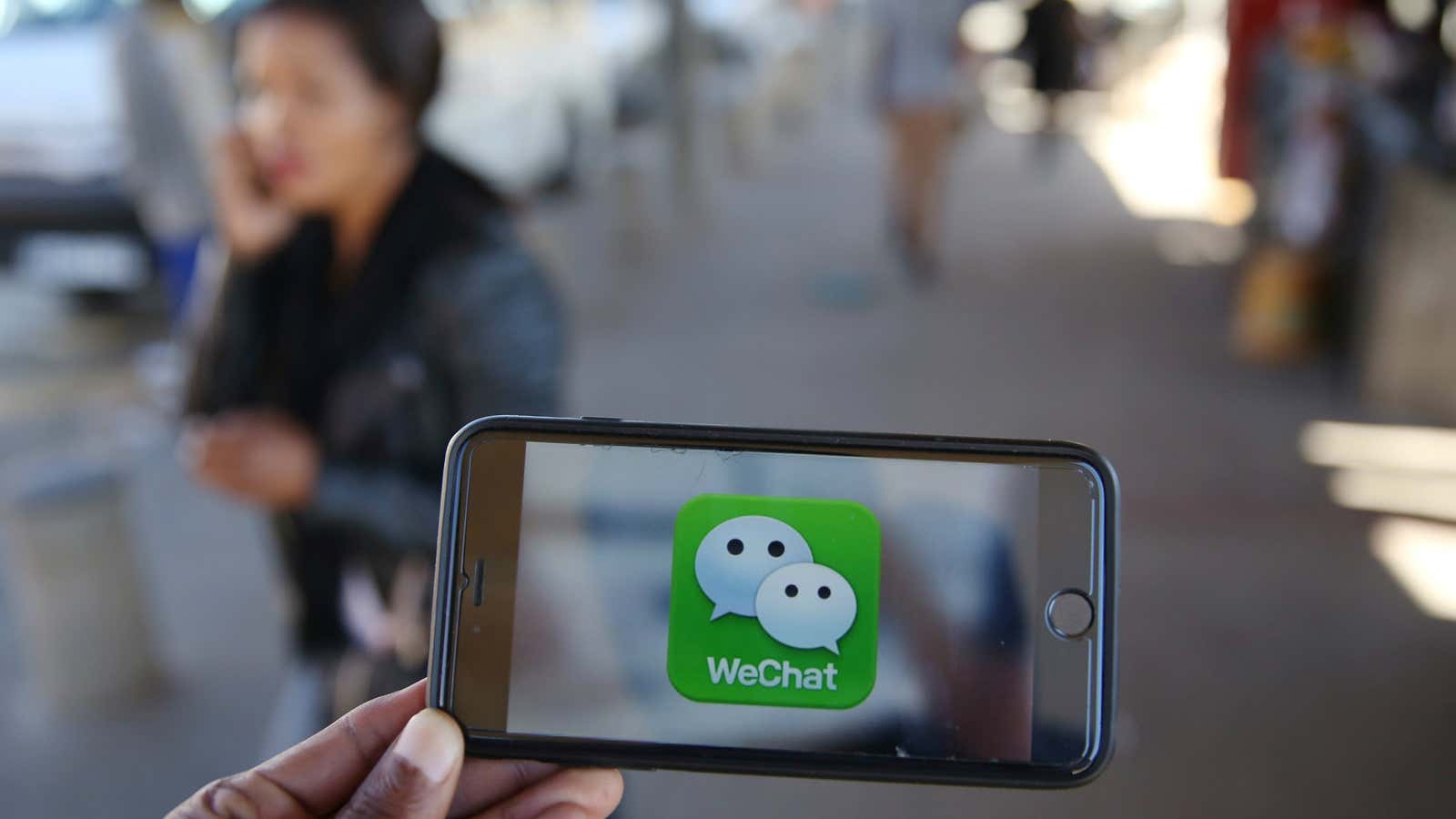Alibaba can claim the title of leading the largest IPO ever on the New York Stock Exchange. But it can no longer claim to be the most valuable Chinese tech company.
Tencent’s market cap has steadily surpassed that of Alibaba for several months, and shows no signs of abating. The Chinese social giant’s rise stems from the growing influence of its WeChat app, which is becoming a hub for everything from chat to payments to media.
Yesterday (Aug. 18) Tencent finished its first day of trading after its most recent earnings report at a market cap of $24.5 billion. That placed it a hair above Alibaba, which closed trading on the New York Stock Exchange yesterday at a $24.2 billion valuation.
The one-up is no fluke. With the exception of a lag last week (which came right after Alibaba reported its quarterly earnings), Tencent’s valuation has consistently exceeded Alibaba’s since late May.
What makes Tencent more valuable than Alibaba? For one thing, money. Its $5.2 billion in profit this past quarter surpassed Alibaba’s entire revenues for the same period. And its revenue reached $18.7 billion.
Most of that money comes from its desktop gaming business, which dates back to the 2000s. But its true growth driver is WeChat. While the app originated as a WhatsApp-esque chat app, it has since evolved into the single most important app for any smartphone user in China. It’s used to pay for parking tickets, cups of coffee, restaurant bills, and even a down payment on an apartment.
It’s also, much like Facebook, a portal for one’s mindless reading habits. WeChat Moments, like the Facebook Newsfeed, is a hub for sharing links and ramblings. And its “Official Accounts” are roughly analogous to Facebook Pages, except they can sometimes chat with you.
Such properties look promising for Tencent, at least in the short term. The company claims that revenues for performance-based advertising in WeChat Moments and WeChat Official Accounts grew 80% year-on-year to 3,697 million yuan ($556 million). As the app in which Chinese smartphone users already spend most of their time, the company is poised to enjoy a boom in mobile ads that resembles the one Facebook has enjoyed in recent years.
Alibaba has no social app of its own to rival WeChat. Laiwang, its best attempt at a clone, was a failure. Its growth remains driven by e-commerce, which is growing but not new, and entertainment and media, which Tencent doing as well.
It does have a trump card, however: the fast-growing AliCloud, which handles companies’ IT infrastructure in the cloud. The service brought in $187 million this past quarter, marking annual growth of 156%. It parallels Amazon’s Amazon Web Services, which brings in $10 billion a year in revenue. If AliCloud can approach those heights, Alibaba’s valuation will likely soar further.




